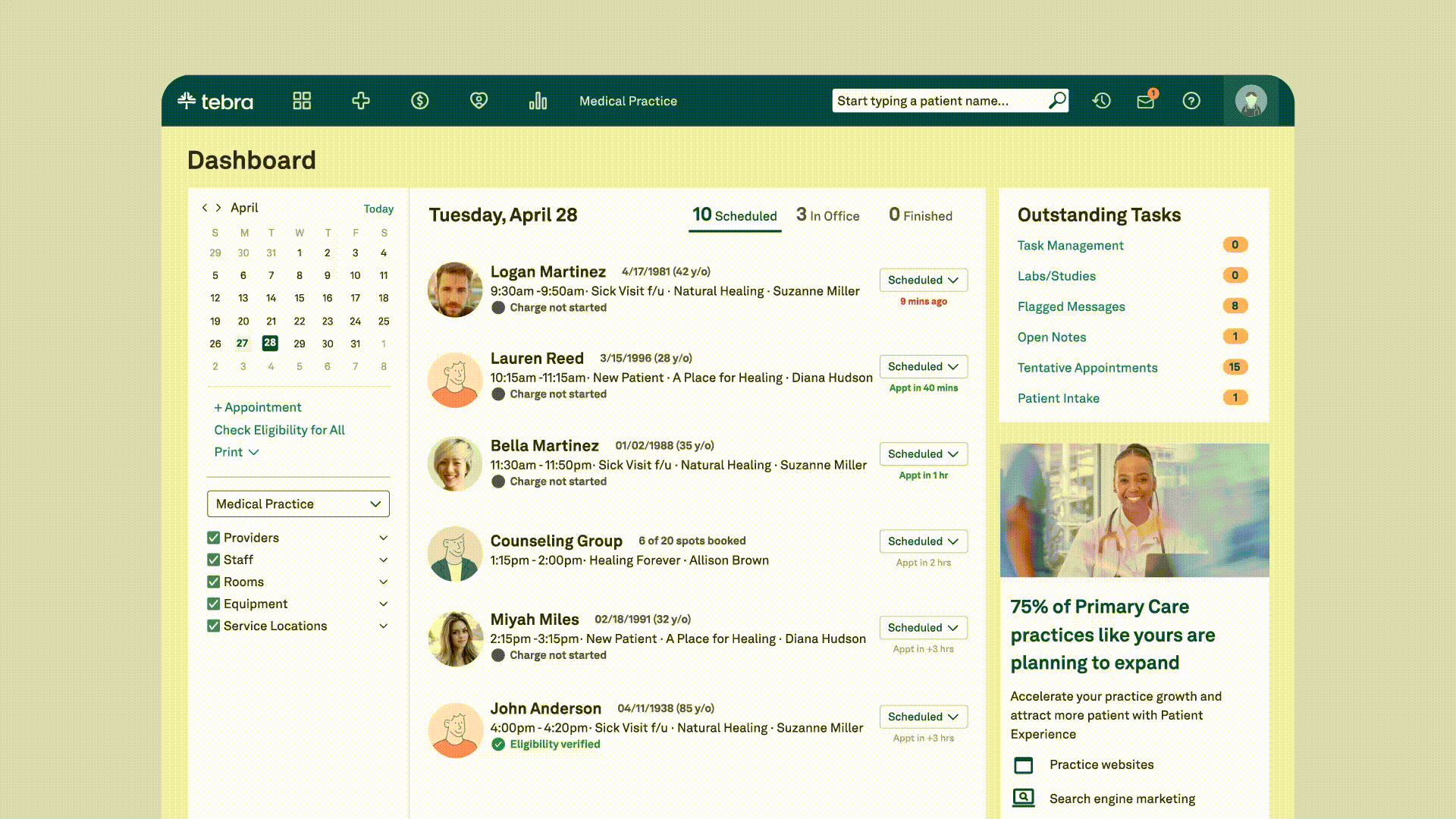Understanding CMS proposals for healthcare quality reporting in 2025 and beyond
Quality reporting in healthcare continues to play an important role in helping providers improve patient outcomes and generate additional revenue.

Table of Contents
At a Glance
- CMS is proposing significant changes for 2025, including 9 new quality measures, 6 new episode-based cost measures, and a 2.6% payment update for outpatient hospitals and ASCs that meet quality reporting requirements.
- Healthcare providers need to review their EHR capabilities and select appropriate quality measures from the proposed 196 MIPS options to maximize reimbursement potential based on their specialty and patient population.
- The future of healthcare quality reporting is moving toward digital measurement systems, with CMS focusing on streamlined metrics, standardized health equity data, and more transparent consumer reporting.
Quality reporting in healthcare continues to play an important role in helping providers improve patient outcomes and generate additional revenue. As quality measures evolve, understanding important regulatory changes will promote best clinical practices, enhance revenue integrity, and mitigate the risk of financial penalties. In this blog, we’ll cover some of the most important proposed changes for healthcare quality reporting in 2025 and provide tips to promote compliance.
Key changes in the Quality Payment Program (QPP)
There are several important proposed changes to the Centers for Medicare and Medicaid Services (CMS) QPP for calendar year (CY) 2025. Consider the following:
- Updates to the Merit-based Incentive Payment System (MIPS)
Prepare for 9 new quality measures, 6 new episode-based cost measures, and 2 new population health improvement activities. CMS may also modify several existing measures and remove others. In addition, the agency will maintain the current MIPS threshold at 75 points to avoid a penalty.
- Introduction of new MIPS Value Pathways (MVP)
CMS proposes to create 6 new MVPs for certain specialties, providing alternative ways to demonstrate quality and increase reimbursement.
- Implications for Accountable Care Organizations (ACO)
CMS proposes to create the Alternative Payment Model Performance Pathway Plus quality measure set and require ACOs to report on all measures in the measure set annually.
Specific changes to hospital Outpatient Prospective Payment System (OPPS) and Ambulatory Surgical Center (ASC) payment system
If finalized, outpatient hospitals and ASCs may see several important changes to the QPP for CY 2025. Consider the following:
- Proposed payment update details
CMS proposes a 2.6% payment update for outpatient hospitals and ASCs that meet quality reporting requirements.
- Impact on hospital outpatient departments
CMS may remove 2 quality measures and adopt 4 new quality measures related to health equity, social drivers of health, and health literacy. The agency may also require electronic health record (EHR) technology be certified to all electronic clinical quality measures available to report in the hospital outpatient quality reporting program measure set.
- ASC adjustments
CMS may adopt 3 new quality measures related to health equity and social drivers of health.
Strategies for navigating new reporting requirements
Navigating new CMS quality reporting requirements requires proactive planning and educated decisions. The quality measures you select to report to CMS are critical. For example, CMS proposes 196 MIPS quality measures for the 2025 performance period, so you’ve got quite a few options to consider based on your specialty and patient population.
For example, have you increased lung cancer screenings or screenings for cardiovascular risk? If so, this could help you generate higher MIPS quality payments based on the 2025 changes. The same is true if you’ve focused on cost containment for patients with chronic kidney disease, rheumatoid arthritis, or several other diagnoses.
Likewise, if you’re in certain specialties (i.e., ophthalmology, dermatology, gastroenterology, pulmonology, urology, and surgical care), you might want to check out new MVPs that could be advantageous for your medical practice.
During this time, you should also review your EHR capabilities to ensure your vendor is certified and can help promote compliance through quality dashboards, guided workflows, and automated reporting.

Here are some tools and resources for seamless quality measure reporting:
- 2025 ASC quality measures
- 2025 changes to the quality payment program for physicians (see appendices for current/final versus proposed changes for CY2025)
- 2025 hospital outpatient quality measures
- 2025 MVP proposals
- Additional ASC quality program resources
- Additional hospital outpatient quality reporting program resources
- Quality measures tool (stay tuned for 2025 updates)
- Quality payment program for physicians
- Quality payment program resources for small medical practices
- Quality payment program timeline and important deadlines
Tebra's EHR+ is an ONC-certified all-in-one platform built for independent practices that can help streamline quality measure reporting. Learn more.
The future of CMS quality initiatives
CMS is continually evolving its quality measures as part of a national quality strategy to shape a resilient, high-value American healthcare system that delivers high-quality, safe, and equitable care for all. One emerging trend in healthcare quality reporting is the transition to digital quality measurement to reduce data collection and reporting burden, while increasing the use of available data to inform treatment and help prevent medical and other errors.
Upcoming regulatory developments may modernize the industry through several key developments. These include: streamlined quality metrics, standardized health equity data, more widely used patient feedback systems, and transparent consumer reporting.
FAQs and additional resources
Following are several FAQs and links to additional resources:
Q: What is the CMS quality reporting program?
A: CMS manages several quality reporting programs that address different areas of healthcare. The overarching goal of these programs is to help all Americans achieve optimal health and well-being.
Q: What does the CMS quality initiative include?
A: The CMS quality initiative includes various measures that assess changes in quality related to health outcomes, clinical processes, patient safety, efficient use of healthcare resources, care coordination, patient engagement, patient perceptions of care, and population and public health.
Q: How does CMS hope to increase quality care in the future?
A: CMS is working to incorporate health equity into all of its quality programs so it can address ongoing healthcare disparities. The agency is also planning additional initiatives to advance the transition to digital quality measurement and to expand the use of person-reported outcomes as part of its national quality strategy.
Q: What are some helpful links?
A: Here are some helpful links to help promote quality care in your medical practice:
You Might Also Be Interested In
Crack the code for beating medical billing challenges with this free workbook — with tips on improving patient collections, streamlining claims submissions, and reducing rejections and denials.
Stay Ahead with Expert Healthcare & Billing Insights
Get the latest industry updates, financial tips, and expert strategies — delivered straight to your inbox.

Suggested for you
Stay Ahead with Expert Healthcare & Billing Insights
Get the latest industry updates, financial tips, and expert strategies — delivered straight to your inbox.








